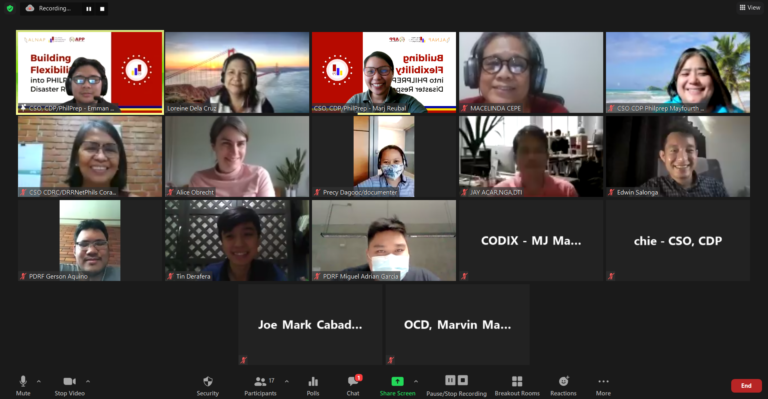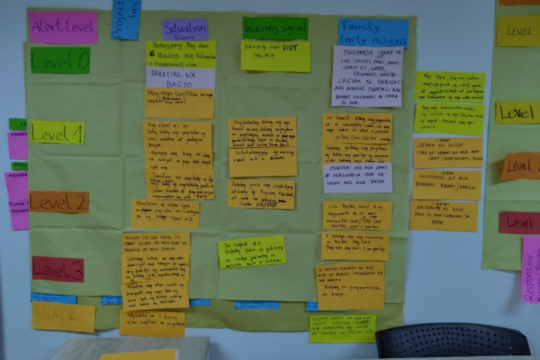They say change is the only constant thing in our world. Local, national, and even international organizations continue to face various challenges when their strategies do not match the reality of the situation. In 2021, we still endure the impact of the global pandemic matched with a massive economic crisis and social unrest. Organizations need greater flexibility and adaptability more than ever with the increasing frequency and magnitude of crises.
The Philippine Preparedness Partnership (PHILPREP) is one such institute that needs to be flexible and adaptive to changing times. PHILPREP consists of major actors from the government, civil society, and the private sector. It is composed of the Office of Civil Defense (OCD), the Center for Disaster Preparedness (CDP), and the Philippine Disaster Resilience Foundation (PDRF). The tri-partite partnership was established through the Asian Preparedness Partnership (APP), with support from the Asian Disaster Preparedness Center (ADPC) and the Bill & Melinda Gates Foundation (the foundation).

PHILPREP has been working on strengthening local capacities for effective disaster risk reduction and management (DRRM) for five years. The partnership found that there is weak coordination and cooperation among response agencies and local humanitarian actors during this period. There is also a lack of cultural sensitivity, accountability, transparency, and participation in DRRM programming. PHILPREP has partnered with the Active Learning Network for Accountability and Performance in Humanitarian Action (ALNAP), conducting two peer learning virtual workshops on Building Flexibility into PHILPREP’s Disaster Preparedness and Response to address this. The workshops were held from 13 to 14 April 2021. It engaged national organizations and agencies from the three major sectors that reflected on the proposed ways of working and identified modifications and recommendations on how the platform can enable flexible delivery of humanitarian interventions in the country.
Ms. Alice Obrecht, Head of Research and Impact and Lead Researcher for ALNAP’s Program on Supporting More Flexible and Adaptive Approaches to Humanitarian Action, defined organizational flexibility, “It is the ability for organizations or a system to make changes as needed particularly to disaster preparedness and response”. It is deemed important to facilitate a faster response to changing circumstances specifically in a dynamic of quickly changing situations. Providing more relevant and community-driven solutions by strengthening accountability and feedback to identify improvements and problematic areas is also essential. Ms. Obrecht also emphasized there is no one size fits all solution to a problem. Such viewpoints tend to blind organizations to creating solutions to many other community problems that need to be addressed.
PHILPREP members and its partners were able to learn different approaches to explore and equip communities when they face multiple crises and help them address changing needs. The workshops allowed them to reflect on how to shift activities and resources when the context or understanding of what is needed changes. Mr. Emmanuel Victor Serrano, a Project Coordinator of PHILPREP, closed the event by expressing her appreciation, “It is remarkable to see how members and stakeholders of three different humanitarian sectors have come together. We have unified to build a cohesive and strengthened nation with our initiatives continuously adapting to the changing circumstances.”
The output from the workshop will serve as a framework for the future work and plans of PHILPREP and ALNAP. A series of workshops will also be conducted at the local level to achieve a more adaptive and flexible Philippines.


